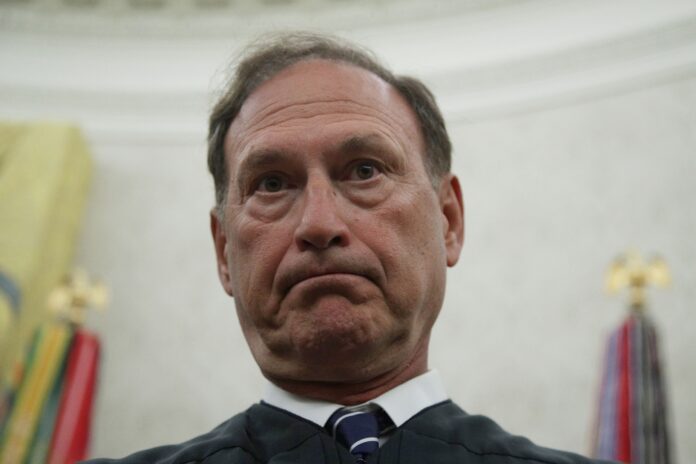
By Samuel A. Lopez – USA Herald
The 9th Circuit Court of Appeals just got an earful from U.S. Supreme Court Justice Samuel Alito, who harshly criticized its handling of a police shooting case in San Jose. The case involves the 2017 fatal shooting of Jacob Dominguez, an unarmed man, by San Jose Police Sgt. Michael Pina. A federal jury found the officer had used excessive force, awarding Dominguez’s widow and children $1 million in damages.
Alito, however, is having none of it, calling the lower courts’ decisions “a flagrant error” and lambasting the appellate judges for what he described as “ham-fisted” reasoning. The justice argued that the courts “ran roughshod” over the doctrine of qualified immunity and based their decision on a 2022 case that was decided years after the shooting. But is Alito’s outrage justified, or is this just another example of the Supreme Court’s conservative wing trying to protect law enforcement at all costs?
The core of the dispute lies in the legal principle of qualified immunity — a doctrine designed to shield government officials, including police officers, from civil lawsuits unless they violate “clearly established” legal precedents. But what does “clearly established” even mean? That’s the million-dollar question (or, in this case, the $1 million question).
When Dominguez was shot in 2017, Pina and his legal team claimed he was protected under qualified immunity. However, U.S. District Judge Beth Labson Freeman disagreed. She ruled that Pina could be held accountable, partially relying on the 9th Circuit’s ruling in Peck v. Montoya — a 2022 case where deputies fatally shot a blind man.
Here’s where things get murky: Peck was decided five years after Dominguez’s death. Alito pounced on this point, arguing that the lower courts “badly fumbled” by using a decision that wasn’t in place at the time of the shooting. But Judge Freeman had an answer for that. She pointed out that Peck built on an even older case, Cruz v. City of Anaheim, which had already set a precedent on excessive force in traffic stops. In other words, Peck wasn’t rewriting the rules — it was reinforcing them.


